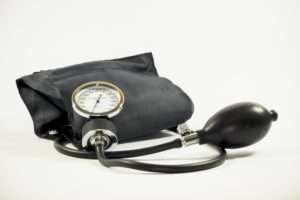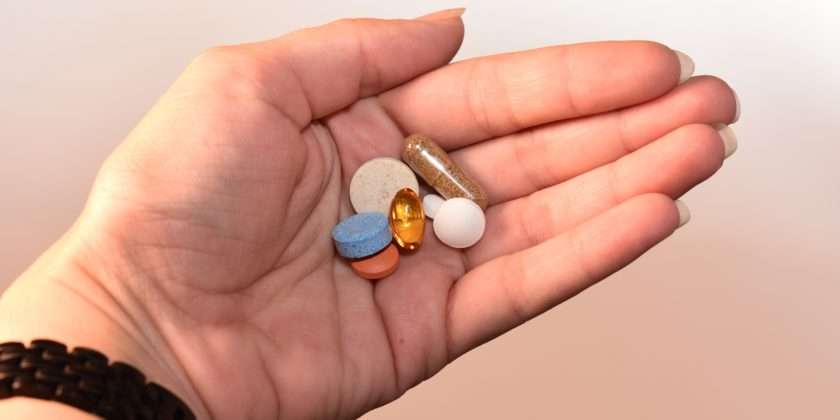This post, “Sleep Meds Warning From the FDA: 66 cases in 26 Yrs.” is in part an awareness letter from the FDA about certain prescription sleep medications. Jay Harold also wanted to provide additional information on adverse drug events (ADE). Each year, ADEs account for nearly 700,000 emergency department visits1 and 100,000 hospitalizations.
Jay Harold has written several posts about the potentially dangerous effects of drug medications. Jay Harold’s post, “Drug Side Effects: Dangerous Meds & Ways to Reduce Your Risk,” was an attempt to give you more tools about drug medications and the healthcare system. “Cholesterol and Statins: 6 Questions Answered,” is another attempt to keep you informed about the risks of commonly taken drugs.
FDA Warning Letter on Sleep Medications2
[04-30-2019] The Food and Drug Administration (FDA) is advising those rare but serious injuries have happened with certain common prescription insomnia medicines because of sleep behaviors, including sleepwalking, sleep driving, and engaging in other activities while not fully awake. These complex sleep behaviors have also resulted in deaths. These behaviors appear to be more common with eszopiclone (Lunesta), zaleplon (Sonata), and zolpidem (Ambien, Ambien CR, Edluar, Intermezzo, Zolpimist) than other prescription medicines used for sleep.
Patients should stop taking your insomnia medicine and contact your health care professional right away if you experience a complex sleep behavior where you engage in activities while you are not fully awake or if you do not remember activities you have done while taking the medicine.
Concerns about Sleep Medications
We identified 66 cases of complex sleep behaviors occurring with these medicines over the past 26 years that resulted in serious injuries, including death (see Data Summary). This number includes only reports submitted to FDA* or those found in the medical literature,1-5 so there may be additional cases about which we are unaware. These cases included accidental overdoses, falls, burns, near drowning, exposure to extreme cold temperatures leading to loss of limb, carbon monoxide poisoning, drowning, hypothermia, motor vehicle collisions with the patient driving, and self-injuries such as gunshot wounds and apparent suicide attempts. Patients usually did not remember these events. The underlying mechanisms by which these insomnia medicines cause complex sleep behaviors are not completely understood.

FDA is also reminding the public that all medicines taken for insomnia can impair driving and activities that require alertness the morning after use. Drowsiness is already listed as a common side effect in the drug labels of all insomnia medicines, along with warnings that patients may still feel drowsy the day after taking these products. Patients who take insomnia medicines can experience decreased mental alertness the morning after use even if they feel fully awake.
A drug recall1 is the most effective way to protect the public from a defective or potentially harmful product. A recall is a voluntary action taken by a company at any time to remove a defective drug product from the market.
When to Report an Adverse Event to the FDA3
An adverse event is any undesirable experience associated with the use of a medical product in a patient. The event is serious and should be reported to the FDA when the patient outcome is:
Death
Report if you suspect that the death was an outcome of the adverse event, and include the date if known.
Life-threatening
Report if suspected that the patient was at substantial risk of dying at the time of the adverse event, or use or continued use of the device or other medical product might have resulted in the death of the patient.
Hospitalization (initial or prolonged)
Report if admission to the hospital or prolongation of hospitalization was a result of the adverse event.
Emergency room visits that do not result in admission to the hospital should be evaluated for one of the other serious outcomes (e.g., life-threatening; required intervention to prevent permanent impairment or damage; other serious medically important event).
Disability or Permanent Damage
Report if the adverse event resulted in a substantial disruption of a person’s ability to conduct normal life functions, i.e., the adverse event resulted in a significant, persistent or permanent change, impairment, damage or disruption in the patient’s body function/structure, physical activities and/or quality of life.
Congenital Anomaly/Birth Defect
Report if you suspect that exposure to a medical product prior to conception or during pregnancy may have resulted in an adverse outcome in the child.
Required Intervention to Prevent Permanent Impairment or Damage (Devices)

Report if you believe that medical or surgical intervention was necessary to preclude permanent impairment of a body function, or prevent permanent damage to a body structure, either situation suspected to be due to the use of a medical product.
Other Serious (Important Medical Events)
Report when the event does not fit the other outcomes, but the event may jeopardize the patient and may require medical or surgical intervention (treatment) to prevent one of the other outcomes. Examples include allergic bronchospasm (a serious problem with breathing) requiring treatment in an emergency room, serious blood dyscrasias (blood disorders) or seizures/convulsions that do not result in hospitalization. The development of drug dependence or drug abuse would also be examples of important medical events.
Recent Recalls4
| Date | Brand Name(s) | Product Description | Reason/Problem | Company Name |
|---|---|---|---|---|
| 05/03/2019 | Heritage | Losartan Potassium Tablets USP | Defect | Vivimed |
| 05/01/2019 | Par Pharmaceutical | Mycophenolate Mofetil for injection | Potential Foreign Material | Par Pharmaceutical, Inc. |
| 04/30/2019 | Sagent Pharmaceuticals | Ketorolac Tromethamine Injection | Potential Lack of Sterility | Sagent Pharmaceuticals |
| 04/29/2019 | AmEx Pharmacy | Bevacizumab 1.25mg/0.05mL 31G Injectable | Device & Drug Safety | AmEx Pharmacy |
| 04/26/2019 | GSMS Incorporated | Losartan Potassium 25 mg and 100 mg Tablets USP | Device & Drug Safety | Teva Pharmaceuticals USA, Inc |
| 04/24/2019 | Legacy | Losartan Potassium USP | Unapproved Ingredient | Legacy Pharmaceutical Packaging |
| 04/21/2019 | Alvogen | Fentanyl Transdermal System | Device & Drug Safety | Alvogen |
| 04/18/2019 | Torrent Pharmaceuticals Limited | Losartan potassium tablets, USP; Losartan potassium and Hydrochlorothiazide tablets, USP | Potential Foreign Material | Torrent Pharmaceuticals Limited |
| 04/09/2019 | Platinum 40000 | Aphrodisiac capsules | Unapproved Ingredient | Cape Cod Provisions LLC |
| 03/25/2019 | Leopard | Dietary Supplement | Unapproved Ingredient | USA LESS |
Resources For You5
- Report a Serious Medical Product Problem Online

- Report Dietary Supplements and Tobacco Product Problems Online
- Form FDA 3500 – Voluntary Reporting
Jay Harold hopes you enjoyed this post, “What is a Serious Adverse Event? From the FDA”. Please Share it and read more about Jay Harold here. Please take this advice from Muhammad Ali and give back to others. “Service to others is the rent you pay for your room here on earth.”
Bibliography
- https://psnet.ahrq.gov/primers/primer/23/Medication-Errors-and-Adverse-Drug-Events
- https://www.fda.gov/drugs/drug-safety-and-availability/fda-adds-boxed-warning-risk-serious-injuries-caused-sleepwalking-certain-prescription-insomnia
- https://www.fda.gov/safety/reporting-serious-problems-fda/what-serious-adverse-event
- https://www.fda.gov/safety/recalls-market-withdrawals-safety-alerts
- https://www.fda.gov/drugs/drug-safety-and-availability/drug-recalls




